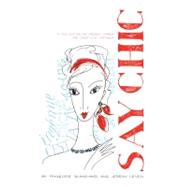
What is included with this book?
The New copy of this book will include any supplemental materials advertised. Please check the title of the book to determine if it should include any access cards, study guides, lab manuals, CDs, etc.
The Used, Rental and eBook copies of this book are not guaranteed to include any supplemental materials. Typically, only the book itself is included. This is true even if the title states it includes any access cards, study guides, lab manuals, CDs, etc.
Chauffeur
[ show fur / show fur ]
From the French verbchauffer("to heat"),chauffeurliterally translates as "stoker," referring to Françoise Blanchard and Jeremy Leven a person responsible for maintaining a fire or boiler. Back in the 1800s, achauffeurwas also a kind of robber who would burn the feet of his victims to extort money. Fortunately, the contemporarychauffeur'sresponsibilities are limited to operating a vehicle. While Englishspeakers apply the term specifically to one who is paid to drive a client around in a private car, the much broader French meaning includes any person behind the wheel of a vehicle.
While the French are certainly not the worst drivers in the world, they do have their fair share of reckless drivers and road hogs, calledchauffards,an insulting term that depicts them as substantially less competent drivers than regularchauffeurs.When called this to their faces, the are known to become overheated.
Copyright © 2004 by Les Editions Diateino
Illustrations copyright © 2007 by Paulina Reyes
Gauche /
gaucherie
[ goÝsh / goÝsh uhree]
The origin ofgauchepossibly lies in the verbgauchir("to bend," "to deform," or "to distort"), which comes from the Old Frenchguenchir("to make diversions"). It was long believed that left-handers, calledgauchersin French, suffered from an unfortunate abnormality. The fact thatgauchehas been used to describe a socially clumsy action, conduct, or remark lacking tact and grace certainly didn't help their cause.
The word arrived into English during the mid-nineteenth century with its French meaning, and has since been employed as a synonym for "unpolished," when talking about a style or technique. Fromgauchenaturally derivedgaucherie,first recorded in French in the eighteenth century. The term, referring to awkward behavior or a blunder that betrays one's maladroitness, also included the sense of timidity.
We will leave it to the reader to explore which nationalities, when visiting Paris, for example, are seen by the good citizens of France to behave in a manner consistentlygauche,being insufferably loud and poorly mannered, a deficiency attributed almost entirely to their tragic misfortune of not being French.
Copyright © 2004 by Les Editions Diateino
Illustrations copyright © 2007 by Paulina Reyes
Excerpted from Say Chic: A Collection of French Words We Can't Live Without by Francoise Blanchard, Jeremy Leven
All rights reserved by the original copyright owners. Excerpts are provided for display purposes only and may not be reproduced, reprinted or distributed without the written permission of the publisher.